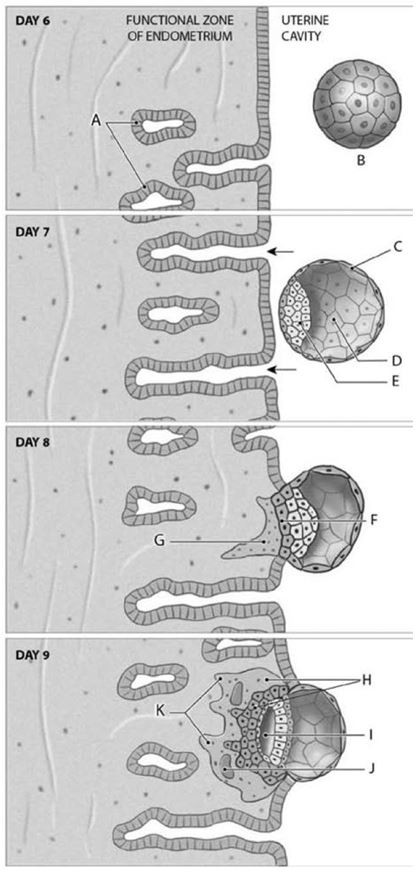Which of the following statements about the refractory period of a membrane is TRUE?
A. The refractory period places an upper limit on the frequency with which a nerve cell can conduct action potentials.
B. The refractory period prevents the action potential from spreading back over the part of the membrane that just underwent an action potential.
C. The absolute refractory period refers to the period of time during which another action potential cannot be initiated in that part of the membrane that is undergoing an action potential, no matter how great the strength of the stimulus.
D. The relative refractory period refers to the period of time during which another action potential can be initiated in that part of the membrane that has just undergone an action potential if a stronger than normal stimulus is applied.
E. All of the answer choices are correct.
Answer: E
You might also like to view...
Describe cilia
What will be an ideal response?
Label C represents which of the following structures?

A) blastocoele
B) blastocyst
C) trophoblast
D) developing villi
E) chorion
What is the fate of the trophoblast of the blastocyst?
A. It develops into the morula. B. It develops into the inner cell mass. C. It develops into the embryo. D. It develops into the zygote. E. It develops into the extraembryonic membranes and part of the placenta.
Which of the following does NOT belong to the axial skeleton?
A) skull B) thoracic cage C) pectoral girdle D) vertebral column